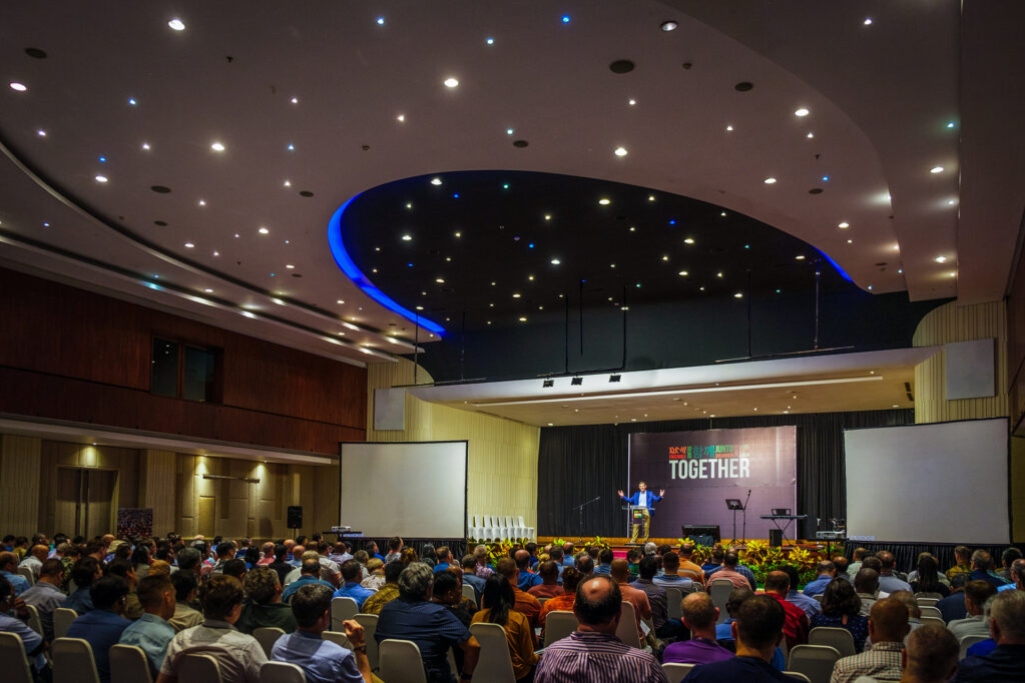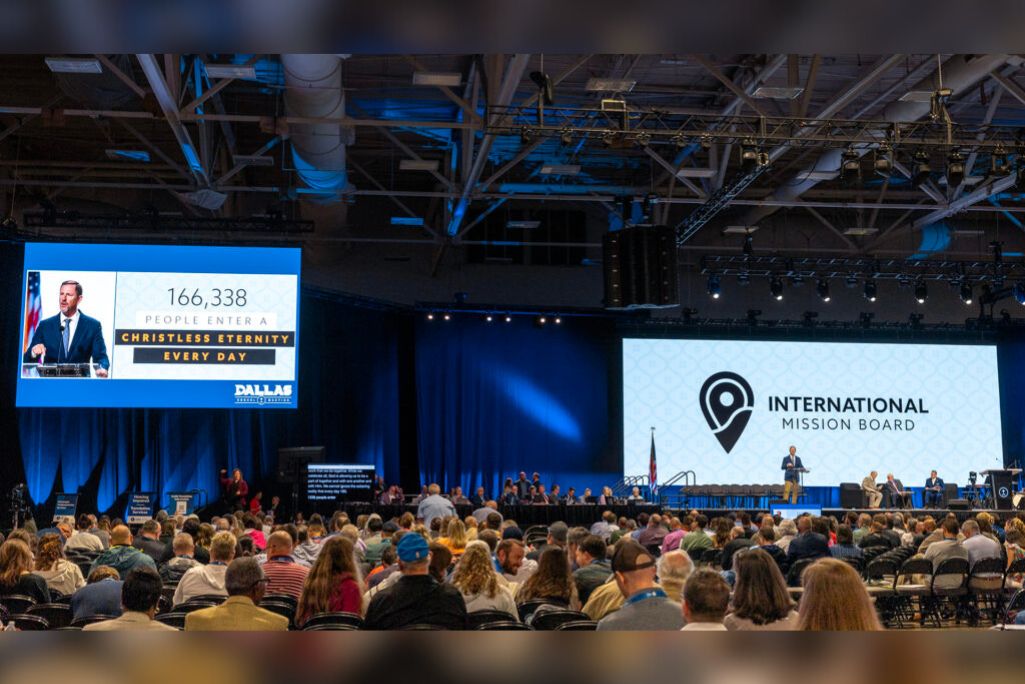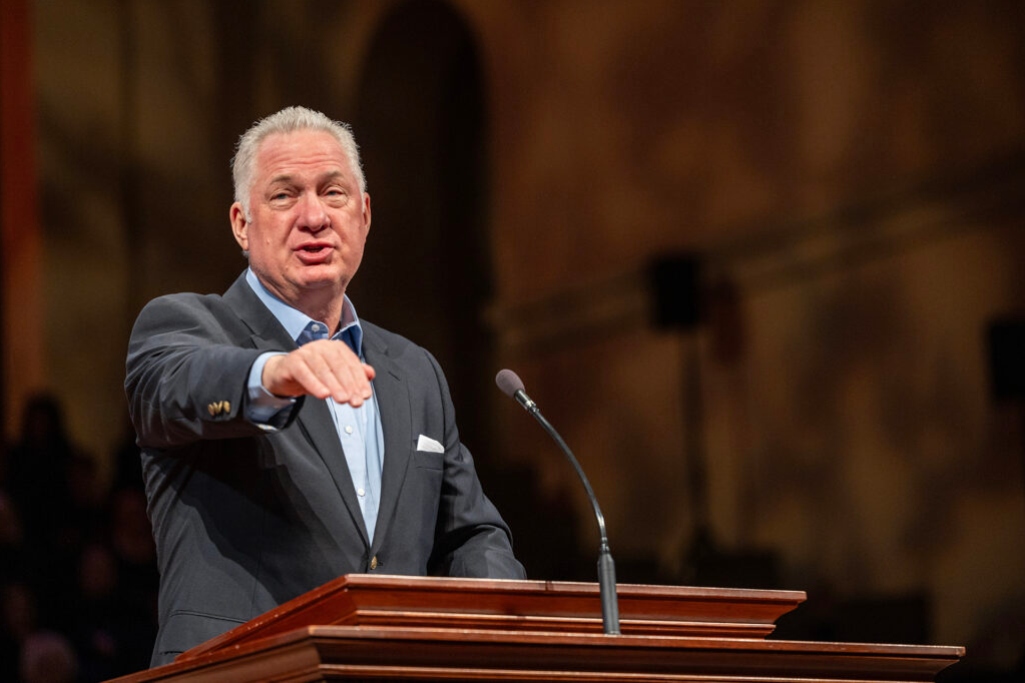
The melody was the same, but the voices united in worship sang in numerous languages. “Then sings my soul,” sang a group in Arabic. Deaf believers lifted hands to sign “My Savior, God to thee, how great Thou Art.” The diverse group of worshipers praised in styles unique to their culture. Their praise, however, was joined to honor one God and their reason to gather was for one purpose — to ask God to send more missionaries from all nations to all nations.
Close to 330 participants representing 76 countries met in Asia for the first Global Senders Forum on April 16-19. The International Mission Board hosted the event but shared leadership responsibilities with other Baptist and like-minded sending organizations. Large delegations from Brazil, South Korea and Taiwan joined single representatives from other countries. National Baptist leaders, heads of conventions, seminary presidents and agency directors joined IMB missionaries and national partners to discuss the growth of their unity in fulfilling the Great Commission.
“We gather this week to explore how we can work closely together to change the reality of growing lostness in the world,” said IMB President Paul Chitwood. “This meeting is a historical first for us. Never in our 179-year history have we convened a meeting of leaders representing more than one-third of the countries on the planet to impact lostness together.”
Chitwood, who sent personal invitations to many of the leaders, said, “You honor me by gathering here. You bless me.”
Historic gathering
IMB leaders have long dreamed of an event like this that gathers missionary senders from around the world, said Amanda Davis who directs globalization efforts for the Southern Baptist agency. The first official plans for an event in 2020 were sidetracked because of the coronavirus pandemic.
“Now we’re rejoicing that the time has finally come,” Davis said. “This really is an historic gathering where global senders will teach each other and encourage each other and pray for each other.
“Some of these participants realize they have traditionally been receivers of missionaries. Now they know they must be missionary senders if the Great Commission is going to be fulfilled. We are all a part of the body of Christ, and each group has unique gifts and resources we all must share and steward for the sake of the Gospel and for the glory of God. We can do more together! We are eager to see what God will do among global Baptists because of this gathering.”
Many of the visiting Baptists can trace their Christian roots to the missionary efforts of Southern Baptists. Today they are owning the strategies for not only reaching their own people groups but sending missionaries to other nations. Attendees offered private and public thanks to the IMB for its long history of commitment to reach the uttermost parts of the world.
Chitwood said, “Southern Baptists in the U.S. will be encouraged to know that work started in 1845 to reach the nations is now being carried out in scores of nations around the world by national believers and is stronger because of it. The countries of Africa are uniting to send missionaries. Brazil currently has 4,000 missionaries serving in 87 countries, and Korean Baptists remain one of our strongest partners in the missionary task as they send thousands of missionaries.
“We cannot stop sending missionaries from the U.S., but believers around the world are saying the same thing, ‘we are stronger together.’”
Multiple nations
IMB leaders asked hotel staff to remove idols and religious icons, common in the host culture, from the main conference room. Statues and the lingering scent of burning incense remained in other parts of the hotel and surrounding area, reminding attendees of the lostness that brought them together.
The four-day event included plenary sessions, breakouts, worship and time for networking and fellowship. Main sessions were led by leaders representing the regions and countries of participants. The hum of translators broadcasting into earpieces provided a white noise behind the voice of speakers. Main sessions were translated into Arabic, Spanish, Portuguese, Bahasa Indonesian, French, Chinese, Korean, Russian, English and multiple sign languages.
Musicians from multiple countries led in worship and encouraged participants to sing familiar songs in their own languages. During a prayer time led by Deaf attendees, pastor Ondrej Klofac from the Czech Republic, asked the crowd to leave their eyes open. “Eyes are important to us,” he signed, referring to the Deaf community. “Pray with me as I talk to my Lord.” Klofac serves as a Deaf church planter in Europe.
Afternoons included breakouts on topics such as engaging Muslims with the Gospel, raising next generations to embrace missions and ministry during political upheaval. Some countries shared specifics about their sending agencies. Networking included times to discuss needs for sending and receiving missionaries, designed for countries to understand how best to serve one another.
Global vision
Throughout the event, the message of unity was repeated. Fernando Brandao, president of the National Mission Board of the Brazilian Baptist Convention, excitedly reminded the crowd to unify through the power of the Holy Spirit. Barely pausing to allow his interpreter to catch up, he said, “We all have the same purpose — reach everyone, everywhere.”
He added, “We cannot retreat because we must reach all nations. And we must do it together!”
Africans on Mission, a new missionary sending agency, exemplified the strength of unity and the growth of the Church in African countries. Mamitiana Nirintsoa, pastor in Madagascar and chair of Africans on Mission, explained that for centuries Africa has only been considered a mission field. Today, Africans are crossing cultural boundaries between their own countries and tribes to unify around obedience to the Great Commission.
“We are the baby in this room,” Nirintsoa said of the group that held their first official meeting in February. “Yet we are ready to send missionaries, to cooperate with you to send missionaries from Africa to Africa and beyond.”
Rehabeam Auala of Namibia echoed the beauty of diverse peoples united around the cause of Christ. “That’s at the center of what [Africans on Mission] stands for,” he said. “[We are] finding the common belief and commitment to spread the Gospel to the world.
“We serve a faithful God who is capable of the impossible. It’s not of man. It’s not of us. It’s not of the continent. It’s of Him,” Auala concluded.
The event ended with a time of commitment. Fifty-nine organizations submitted written commitments, many of which were shared publicly. Some conventions or agencies had specific commitments to send more missionaries. For example, a team from Paraguay committed to send three families beyond its border by 2030. The Togo Baptist Convention committed to send seven more home missionaries and seven more international missionaries by 2025. Others committed to increase mission awareness in churches, training or prayer for more missionaries from their people group. One collective result was a commitment of 1,056 new missionaries over the next 10 years.
“This is only the beginning,” Davis said, summarizing the event. “The IMB has more steps to take toward a global vision of working together with other senders, and other nations also have further steps to take. The exciting part is that as we take steps toward each other, toward working together, we’re also leading others toward Christ and His eternal kingdom. As others have also said this week, this event has been a glimpse into the Revelation 7:9 vision.”
Davis said smaller follow-up globalization meetings are planned for the future. IMB leaders are hopeful that connections and relationships formed through this meeting will create organic networks and partnerships to carry on the vision to reach all nations, tribes, peoples and languages with the Gospel.
(EDITOR’S NOTE – Leslie Peacock Caldwell is managing editor at the IMB.)


